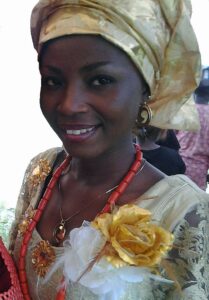Demographics
Nigeria is a densely populated country, with 214.6 million inhabitants (2020), although the numbers vary considerably by source. It is also the country with the most inhabitants in Africa and it has a strong population growth.
Ethnic groups

There are more than 250 different ethnic groups, of which the Haussa and Fulani in the north (29%), the Igbo in the south (18%), the Yoruba in the west (21%) and the Ijaw (10%) are the most important. Also the Tiv (5%), the Kanuri (4%), and the Ibibio (3.5%) are tribes of respectable size.
The main tribes are engaged in a constant struggle for power, leading to outbreaks of violence from time to time. Added to this are tensions due to religious differences: the Haussa, for example, are predominantly Muslim, while the Igbo are predominantly Christian.
Religion
Nigeria is a society with Islam, Christianity and earlier traditional African religions. According to recent estimates, 45.5% of the population is Christian. Islam is the largest religion with 50.5% comprising 95% Sunni Islam and 5% Shia Islam. 6% of the Nigerian population practices traditional African religion. In addition, there is the mixture of Christianity and Islam that originated in Lagos: Chrislam tries to focus on a connection between the Bible and the Quran. Both texts are then read aloud, accompanied by Islamic and Christian customs.
The north of the country is mainly Muslim, while the south is mainly Christian. In a southwestern city like Ibadan there are about as many Christians as Muslims. About 27% of the total population is Protestant and 13% Catholic.
The country has long been the scene of intense ethnic and religious conflict. The difference in religion between the Islamic Hausa and the Christian Ibo is one of the contradictions between the two peoples, which led to the civil war in 1967. The Islamist group Boko Haram has been active since the mid-2000s-2009. The group is a continuation of the Kanuri tradition that wants to return to the former Kanem-Bornu Empire. The total number of victims from Boko Haram violence has risen to more than 23,000 since 2011. Most violence is committed in the northeast of Nigeria.
Jurisdiction
At the beginning of the 21st century, twelve northern states where the Muslim population constitutes the majority replaced civil law with Islamic Sharia, much to the dismay of the Christian minority. In the mainly Christian south, government laws apply.
In August 2020, a 22-year-old popular singer Yahaya Sharif-Aminu was sentenced to death in the northern Nigerian state of Kano by a sharia court. The singer is said to have distributed a song via Whatsapp in which he insults the prophet Mohammed. In 2020, the death penalty was actually carried out only once, in 2002.
Geography

Nigeria is located in western Africa. The coastline of 853 km is bordered on the entire south by the Gulf of Guinea, part of the Atlantic Ocean. Part of the Gulf of Guinea is the Bay of Benin to the southwest and the Gulf of Bonny to the southeast. Nigeria’s land borders have a total length of 4047 km.
Nigeria has a varied landscape. From south to north, the country can be roughly divided into the following vegetation zones; coastal mangrove, tropical rainforest, mostly savanna and grass steppe in the extreme northwest. The relief is largely determined by the basin of the two main rivers; the Niger and the Benue, which meet some 390 km from the coast to form the Niger Delta, one of the largest deltas in the world.
Mountain areas and hills are mainly located in the east on the border of Cameroon, where the Adamawa Mountains are located. Here is also the highest point of Nigeria, the Chappal Waddi with an altitude of 2419 m. In the south there are some hill areas and in the north there are extensive plateaus, such as the Jos plateau and the Bauchi plateau.
Climate
Nigeria has a tropical climate. The coastal area has a rainy climate with precipitation throughout the year. Although the temperature rarely exceeds 32°C, the humidity fluctuates between 90 and 100%. In the west of the coastal plain (Lagos) the average annual precipitation is about 1780 mm; this gradually increases to the east to about 4320 mm. The rest of Nigeria also has a tropical climate, but unlike that of the coast, it has two seasons: a dry season with moderate temperatures (average 21°C) from November to April, and a rainy season from May to October (average 31°C).
Fauna

The animal world is rich in species. Desert and sahel fauna are, among others, represented by gazelles and other antelopes and the savanna fauna is characterized by large game such as lion, elephant, giraffe and numerous antelopes. The hippopotamus is home to the major rivers and the pygmy hippopotamus, still very rare, in the Niger Delta. The tropical rainforest is home to a very rich fauna, among which mammals in particular form the basis of the ‘bushmeat’. The forest fauna is characterized by a large number of monkeys, meerkats, and in the east also great apes (chimpanzee and gorilla). In practice, the animal world does not always enjoy effective protection in a number of reserves. Threatening factors are strong population growth, accompanied by high economic growth, clear-cutting of the forest and relentless, barely regulated hunting of any animal large enough to be eaten. Savannah big game has already become very scarce in central and northern Nigeria and some species have already been virtually wiped out.
Poverty
According to the United Nations Development Programme, 60.8% of the population in Nigeria lives below the poverty line.
Culture

The first African Nobel Prize winner for literature was a Nigerian: Wole Soyinka. Other well-known Nigerian writers include Chimamanda Ngozi Adichie, Chinua Achebe, John Pepper Clark, Ben Okri, Sonny Oti and Ken Saro Wiwa. Ken Saro Wiwa was executed by the military regime in 1995.
Nigeria has a vibrant film culture. The so-called Nollywood films (about 1000 are made each year) are extremely popular in Nigeria and other African countries and have virtually displaced American films. Nollywood movies are not really well known in the west.
Nigeria also has a rich musical tradition and is now dominating the African music scene with tons of new pop music being produced.
An important stimulator in Nigeria is the Committee for Relevant Art. This is the organizer behind several events and festivals to promote and support the arts and culture in the country. CORA is designed by artists and art critics and enthusiasts who call themselves cultural landscapists.









